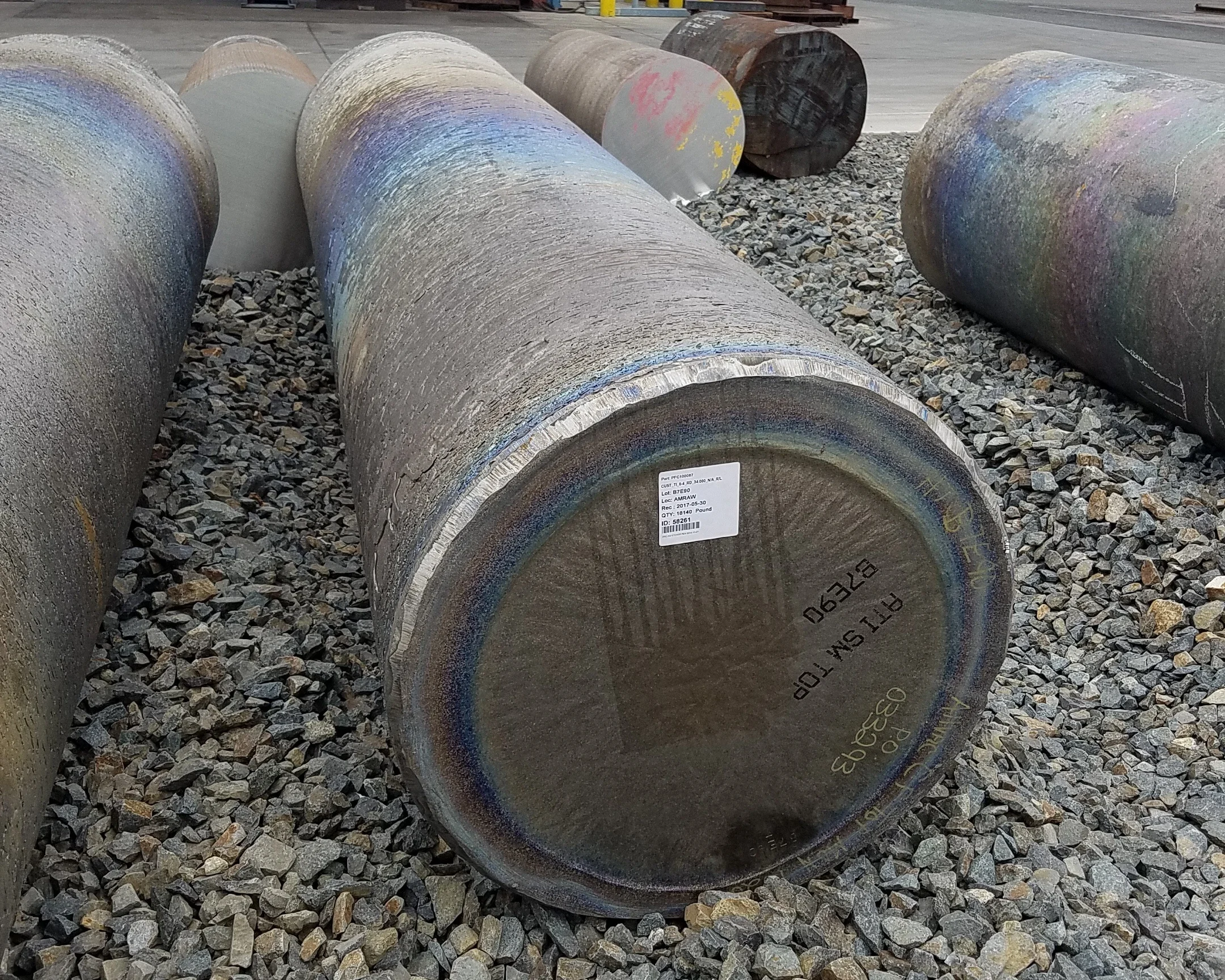6AL-4V Titanium- Sheet, Plate, Bar, Forged Bar
UNS R56400, AMS 4911, AMS 4928
* All Trademarks and/or Trade names are the properties of their respective owners.
6AL-4V Titanium Specifications:
AMS 4911, AMS 4928
UNS R56400
Titanium 6Al-4V Alloy, Ti6Al4V, Ti-6Al-4V, Ti 6-4, Titanium Grade 5
6AL-4V Titanium Available Forms:
6AL-4V Alloy Sheet, 6AL-4V Alloy Plate, 6AL-4V Alloy Bar, 6AL-4V Alloy Froged Bar
6AL-4V Titanium Applications:
Alloy 6AL-4V is used extensively in Aerospace, Medical, Marine, and Chemical Processing.
It is used for connecting rods in internal combustion engines.
Description
Also known as Ti6Al4V, Ti-6Al-4V, Ti 6-4, Titanium 6Al-4V Alloy, or Grade 5 Titanium, is the most commonly used alloy. It is significantly stronger than commercially pure titanium while having the same stiffness and thermal properties. Among its many advantages, it is heat treatable. This grade is an excellent combination of strength, corrosion resistance, weld and fabricability. In consequence, its uses are numerous such as for military aircraft or turbines.
Density
The density of Ti 6Al-4V (Grade 5) is 50% that of nickel-based alloys and stainless steels. It is therefore used extensively in various applications due to its high strength-to-weight ratio.
It is typically used in the annealed condition, at service temperatures up to 400°C. However it may be heat treated for high strength in sections under 4″ thick.
Composition
6Al-4V Alloy is composed primarily of titanium with 6% aluminum, 4% vanadium, 0.25% (max) iron and 0.2% (max) oxygen.
Physical Properties
Density: 4.429 g/cm³
Melting range: 1609 - 1660°C
Beta transus: 996 ± 28°C
Corrosion resistance: PREN (PREN = %Cr + 3.3x%Mo + 16x%N)
Mechanical Properties
Commercially pure titanium has a tensile strength ranging from 275 to 590 MPa, and this strength is controlled primarily through oxygen content and iron content. The higher the oxygen and iron content, the higher the strength.
Heat Treatment
Strain relief annealing is applied to commercially pure titanium and titanium alloys after hot and cold working. Annealing is also applied to recover or re-crystallize the deformed microstructure. Thus, annealing is effective for stabilizing the microstructure and dimensions of the treated product, and to improve the cutting properties and mechanical properties.
Corrosion Resistance
As in other titanium alloys, Ti 64 alloy’s corrosion resistance is based on the existence of a consistent and continuous oxide layer which is formed spontaneously upon exposure to oxygen. It has excellent resistance to corrosion in seawater making it a good choice for use in offshore and subsea oil & gas operations where seawater corrosion and weight are concerns.
Machinability & Forming
6Al-4V’s characteristics are compared to those found in 316 stainless steel. Recommended practice includes high coolant flow (to offset the material’s low thermal conductivity), slow speeds and relatively high feed rates.
This alloy may be hot or cold formed. Popular methods include hydropress, stretch or drop-hammer. This material responds similarly to 300 series stainless steels.
Due to its potential for cold bending and press-forming, titanium is generally used as a material for press-formed products. The formability differs according to the type of titanium alloy. The forming methods applied are mainly press-forming methods such as bending, deep drawing, stretch forming, and spinning, the same as those used with stainless steel. In the solution-treated condition, titanium alloy can be cold formed. Aging treatment can be applied to postformed titanium alloy, thereby achieving strength ranging from 1300 to 1500 MPa.
Forging
Rough forge at 982 C(1800 F), finish at @ 968 C (1750 C).
Hot & Cold Working
Hot forming will reduce both the springback and required forming forces, and will increase the overall ductility of the material.
The cold working characteristics of this material are similar to those of austenitic stainless steels. In multiple forming operations, intermediate stress relieving is recommended to offset the alloy’s tendency to work harden. Post-work annealing is required.
California Metal & Supply is a leading supplier of quality 6Al-4V Titanium Sheet, 6Al-4V Titanium Plate, 6Al-4V Titanium Bar, 6Al-4V Titanium Forged Bar
All of our Titanium 6Al-4V Alloy is ordered to specific thickness. We supply Titanium 6Al-4V Alloy and are capable of fulfilling your required lengths and widths. California Metal & Supply Inc. also has a stocking program to support long term contract for your Titanium 6Al-4V Alloy needs.


